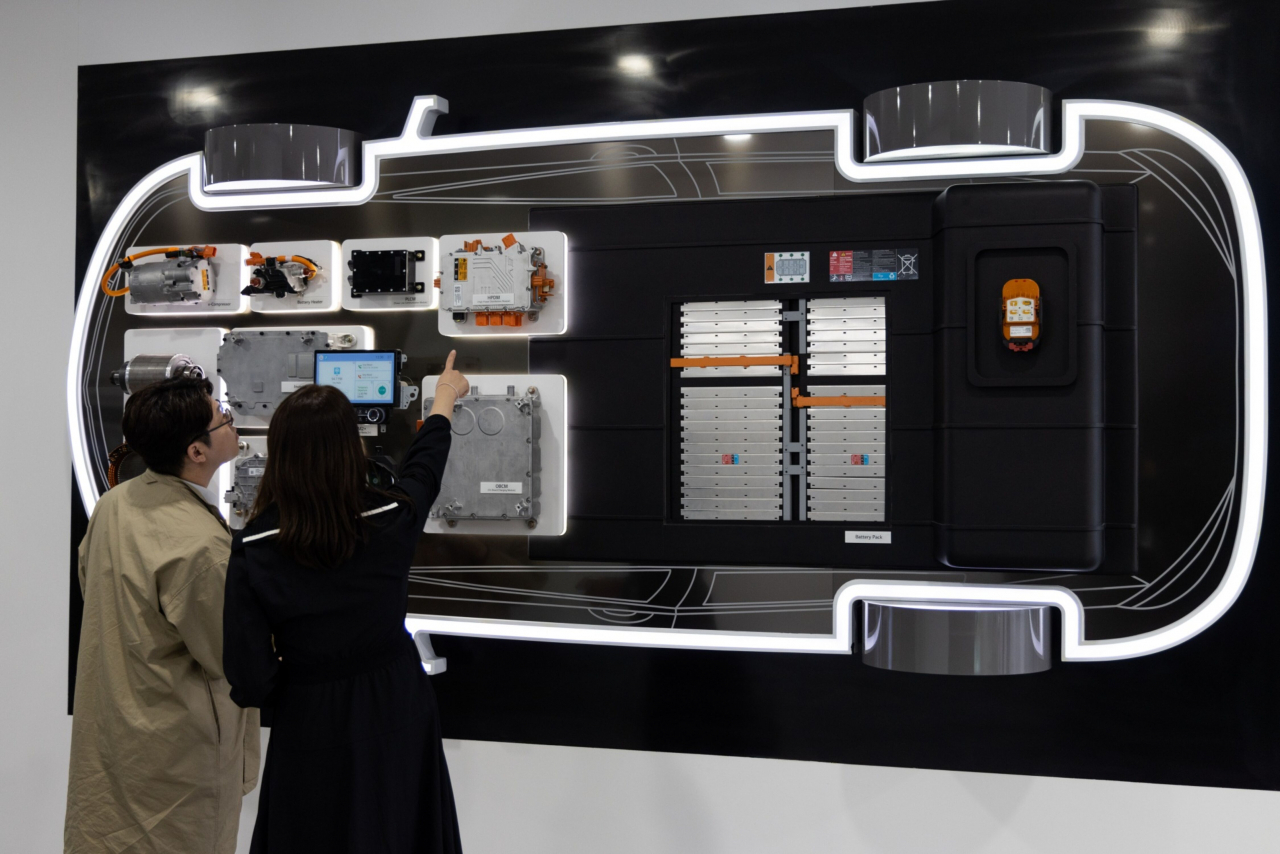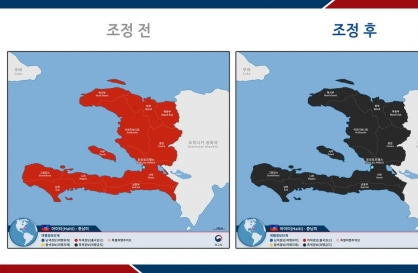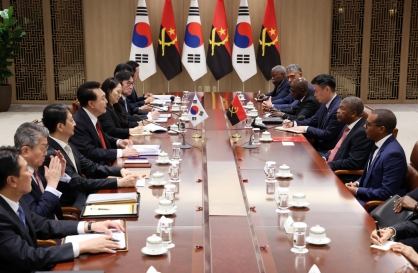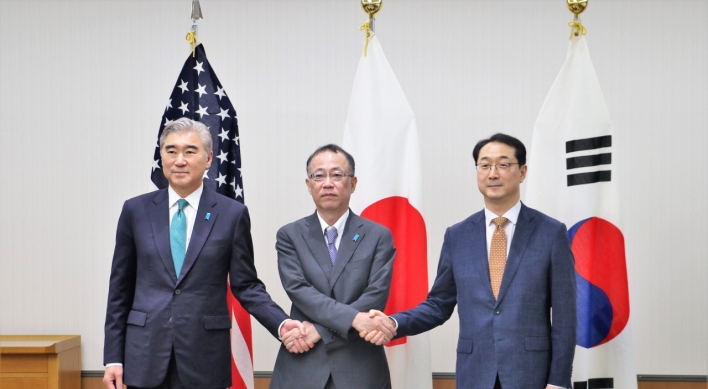LG Energy Solution ups ante in price war against Chinese rivals
Korea’s top battery maker to expand low-priced battery lineup in coming years
By Byun Hye-jinPublished : Oct. 25, 2023 - 15:16

LG Energy Solution plans to boost production of price-competitive electric vehicle batteries -- including lithium iron phosphate (LFP) batteries -- in a move to expand its footing in the low-cost EV market dominated by Chinese rivals, the company said in its third quarter earnings call on Wednesday.
“We plan to launch LFP batteries, and LFMP and manganese-rich batteries in 2026 and 2027, respectively to strengthen our low-priced battery product portfolio,” said Lee Chang-sil, chief finance officer at LG Energy Solution during a conference call. LFMP battery is a mixed product of LFP and lithium manganese phosphate.
It is the first time the battery manufacturer made an official announcement to launch LFP batteries for EVs, according to an LG Energy Solution official. Previously, it only laid out plans to make LFP batteries for energy storage systems in the Arizona plant in the US.
Although LFPs have lower energy density compared to the premium nickel, manganese and cobalt (NCM) battery products, Lee noted the company aims to develop LFPs with high levels of energy density by optimizing battery cell weight and battery pack’s space within a car.
The strategic shift came as the company reported upbeat quarterly earnings earlier in the day. In the July-September period, operating profit -- including the Inflation Reduction Act tax credit provided by the US government -- surged by 40.1 percent to 731.2 billion won ($ 543.1 million) compared to a year go. Its sales revenue jumped 7.5 percent to 8.2 trillion won.
“Revenue has dropped 6 percent from the previous quarter due to sluggish demand for EVs in Europe, cuts in EV production and slowing materials prices," said Lee. “But profit inched up with sales expansion in highly profitable (battery) products, improved production efficiency in the first joint venture with General Motors and cost reduction.”
The company will continue upgrading the energy density, stability and charging speed of its premium products -- mid-nickel NCM, high-voltage mid-nickel NCM and high-nickel NCM batteries.
Catering to the client companies’ growing demand for 46 series cylindrical batteries with 46-millimeter diameter cells, Lee said LG Energy Solution will change the planned production line in the Arizona plant under construction from 2170 cylindrical batteries – which are 21 mm in diameter and 70 mm in length -- to the 46 series. Its annual production capacity will be expanded from 27 gigawatt-hours to 36 GWh as well. The new battery lineup is scheduled to be launched in late 2025.
Before the commercial production of the 46 series, the Ochang Energy Plant -- the company's Korea-based mother factory -- is expected to start pilot production late next year. The existing 2170 batteries will continue to be manufactured in its Nanjing plant in China.
As for next year’s outlook, Lee said, “Sales growth will slow down compared to 2023 as global EV markets are witnessing sluggish growth and drop in customer demand. US automakers are already putting brakes on EV production.”
Noting that the European market’s demand recovery for LG’s batteries will be challenging due to cheap China-made EVs, its Poland plant will control the production volume to minimize inventory costs.
However, the company vowed to carry on annual investments worth around 10 trillion won, driven by increased production capacity in newly built facilities, improved productivity and financial stability. As of October, its order backlog hit more than 500 trillion won after a recent battery supply deal with Toyota.
As for China’s tightened control over graphite exports, LG Energy Solution said it is taking necessary actions and making efforts to secure extra graphite before the restriction takes effect on Dec. 1.
The company has tried to maintain a low profile amid an ongoing strike by the US United Auto Workers, explaining that it is mostly limited to internal combustion engine car production line workers.
“We’ve spoken to OEMs, who anticipate meeting the union halfway. But if the strike goes on, it will affect the OEM’s profitability, which will inevitably have an impact on our company,” said Lee, adding that LG Energy Solution is looking into countermeasures on the matter.



















